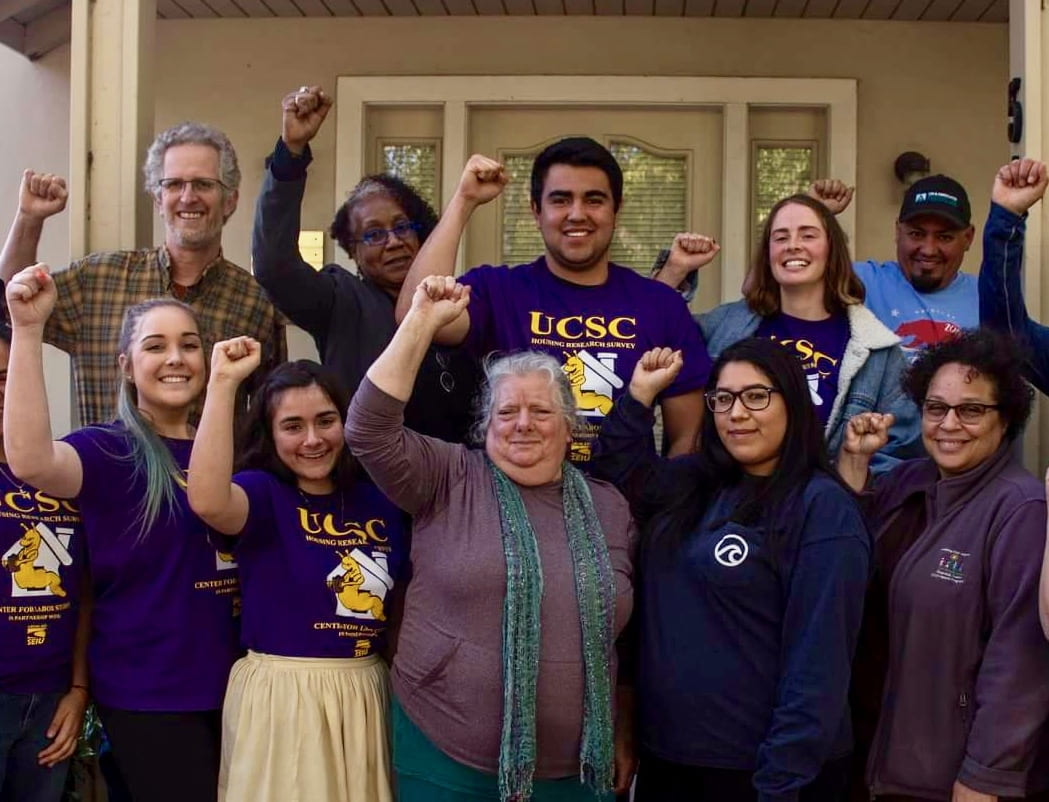Legal Issues, Advocacy, and Criminal Justice
Belonging
Legal status and having access to legal identification was generally positively associated with a sense of belonging. In fact, 94% (76/81) of the interviews discussed having legal status as a variable of belonging. Here, having documentation status but also, having access to systems to provide means of verifiable identification–e.g., consular, drivers license–helped improve stability, and access to other aspects of society (such as banking, jobs, housing, phones, and safety). Legal status and access to identification also helped provide stability, strength, confidence and a sense of belonging in relation to organizations, the local community and/or to the United States.

Pascual moved from Mexico and now lives in Watsonville. He is 52 years old, a first-generation naturalized citizen, and a father of four. Pascual describes the moment he obtained legal documentation as having a major positive impact on the whole family. In an instant, his family no longer had to fear him facing deportation or experiencing travel limitations.
I: Yes, […] and when you like received your papers did they, did they realize the, some opportunities that you now, had?
P: […] I remember I was working in the flower shop when my wife went with, [my two kids]. They went to my job and I remember going in [they were] very happy, “Pa! Pa!” she said, “we’re going to, we’re going to Mexico! We’re going to be able to go to Mexico” very happy. I said, “why?” he said, “look what arrived for you” it was, my resident card they gave it to me, mailed to me. [They were] very happy because they knew what all that meant, for, for all of us not just for them, not just for myself, that is was for them too
I: And how did you feel in that moment?
P: Well, from that moment I said, my fears of, of, immigration are over. Now, I’m not going to have that fear that everytime I see them, and get nervous, that now I’m going to be able to go to Mexico with my family […] I’m going to be able to see my parents.
Non-Belonging
Legal issues were connected to exclusionary policies and not having rights or entitlements due to documentation status, not having access to services to move forward, and a general sense of not-belonging connected to documentation status. Indeed, 95% (77/81) of the interviewees mentioned lack of legal status as a negative factor in feeling belonging.

In just the third grade, Wendy, a 17-year-old student from Watsonville, experienced the negative effects that legal issues have on those who are undocumented and their families.
I: When did you first find out about your family members’ status?
W: […] when I was probably like, I guess I’ve always known, I just never like, cause they never told me when I was little. “Oh, we’re immigrants, like, you’re the daughter of immigrant people”. I guess it’s kind of like, I put it together when we went to Mexico and then that’s when we came back and my mom couldn’t come back with us. That’s kind of when they actually told me like, they’re like, “Oh, well she can’t come back, she doesn’t have papers”. And then they explained to me like the whole situation and stuff. So I guess, probably like in third grade.
S: Was there like, was there like a specific instance or like a moment that you like realize that maybe this could affect you somehow?
W: Well, yeah, when, that exact moment when they told me, they’re like, “Oh, your mom might not be able to come back because you know, she didn’t have papers, and like, if you don’t have papers here, you can’t really, you know, go like through airplane or anything”. And so my dad like, would like explain to me like how she had to cross the border.
